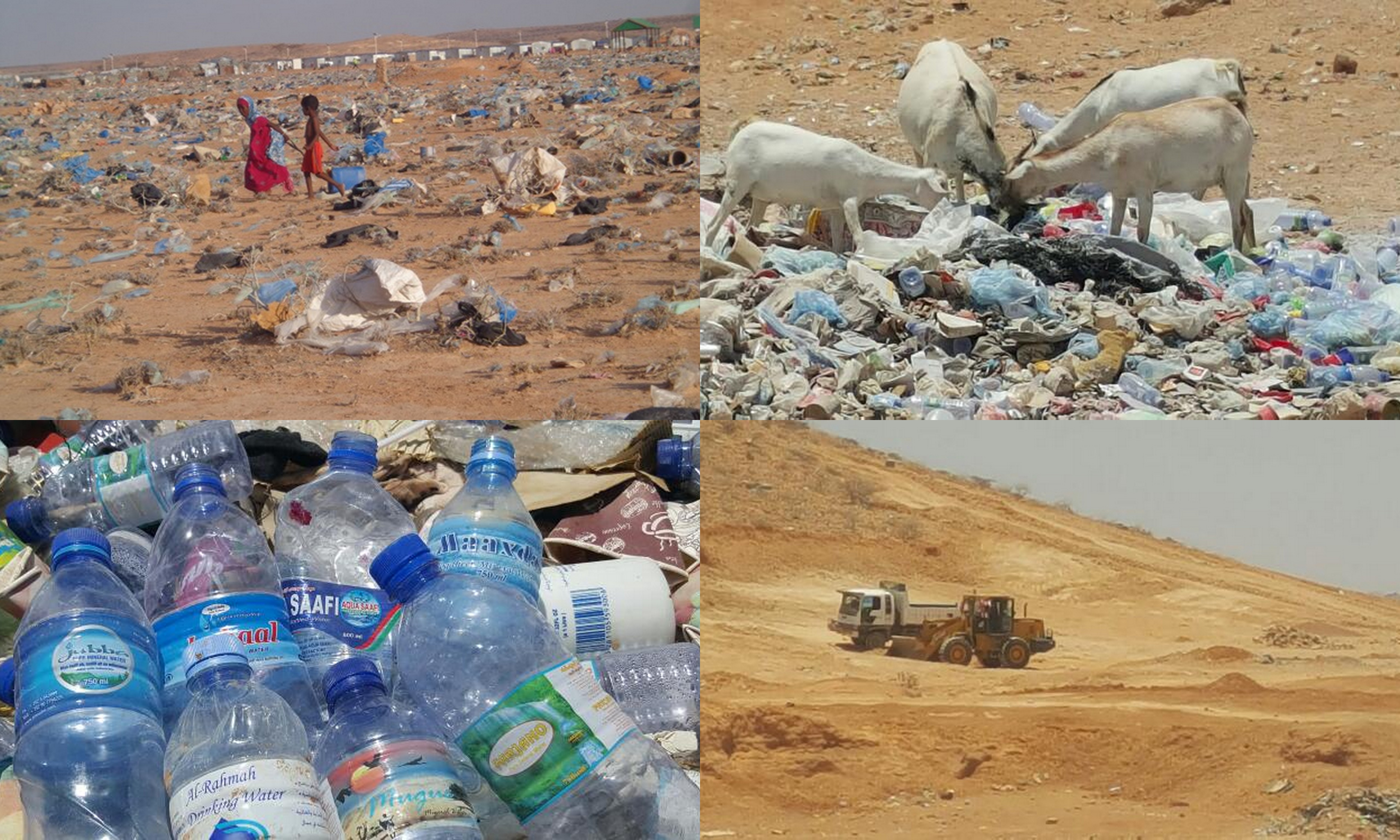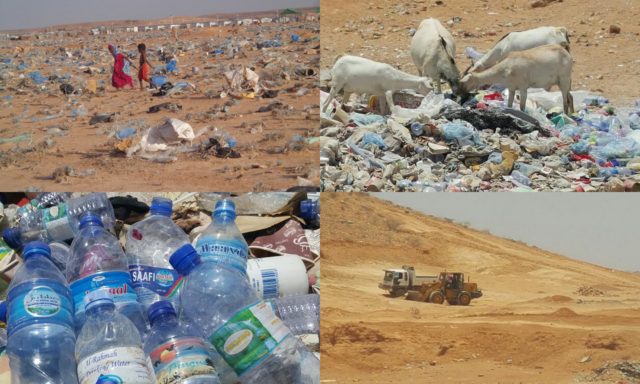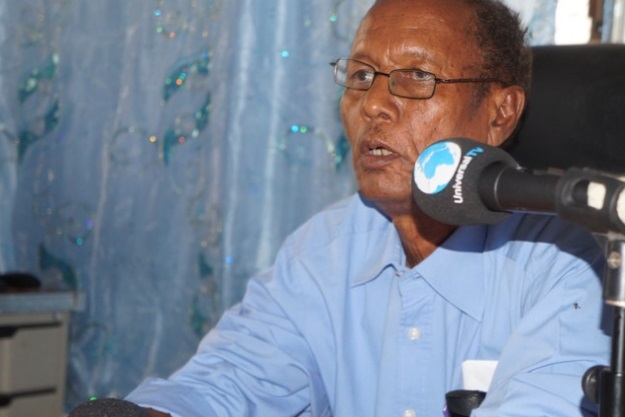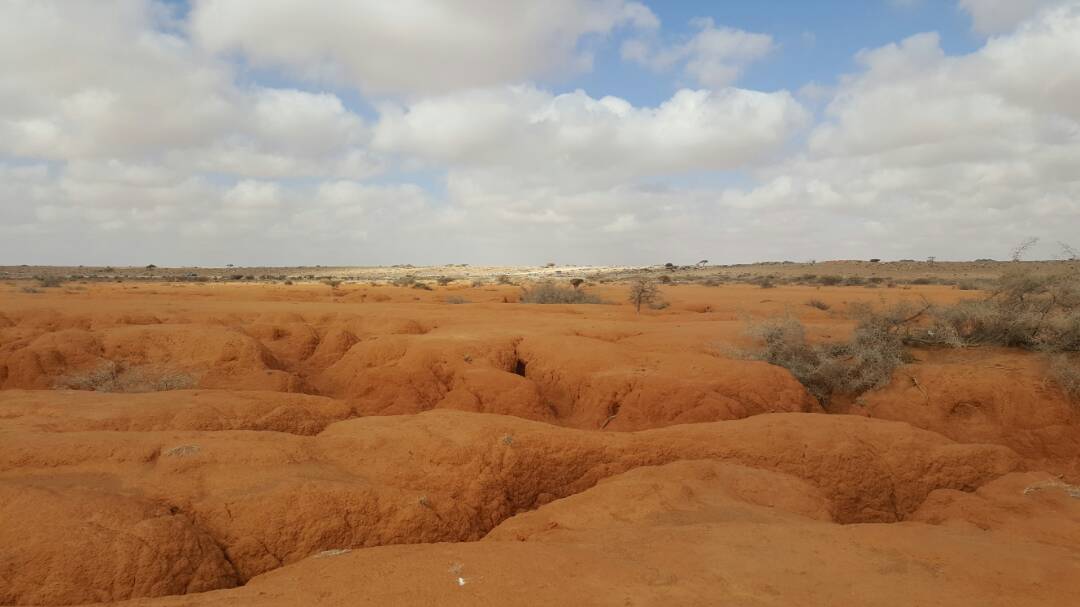
It was not that long ago when Jilab, Laan-Khadijo, the two dry streams and other land surrounding Garowe city – however hot and dry they got – were beautiful grasslands and valleys, transformed into lush green with the first drop of rain in the rainy season. One could travel just over a mile in any direction outside of Garowe, look into the horizon and enjoy the view of the vast expanse of land with diverse native plants as varied as Acacias, Juniperus, Calotropis procera, shrubs, and numerous types of grass. Today the original native vegetation cover is gone and the soil is eroded; leaving parched ground, harsh deserts, large pits and caves in the fields and grasslands. Today this land is an eyesore, barren prairie, miles and miles of bleak windswept grimy wasteland.
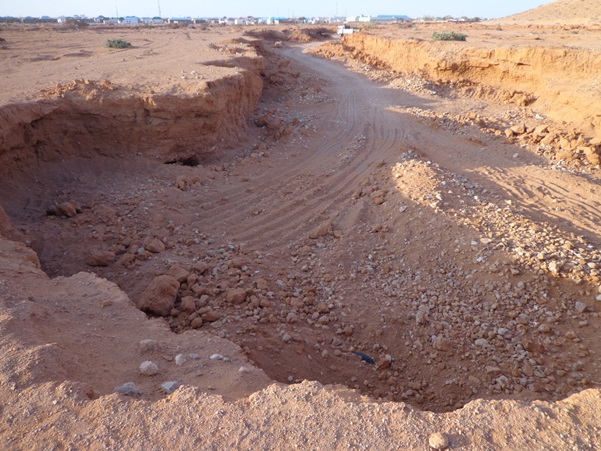
Everywhere you go in Puntland, you cannot bear to look at the unsightly view of litter, a sea of garbage, blighting the land from the shores of Bosaso coast along the Gulf of Aden to the scrublands west of Galkacyo. We observe similar scenes of desertification and litter in and around the other major towns in Puntland where it is predicted that the increasing population, rapid urbanization and expanding cities and towns will see the increased demand for fuel, generation of both solid and liquid waste and pollution.
In a recent WHO report, “Preventing disease through healthy environments: a global assessment of the burden of disease from environmental risks; second edition, March 2015”, it was concluded that “rapid, unplanned and unsustainable styles of urban development are making developing cities the key focal points for emerging environmental and health hazards. WHO attributes the surge of non-communicable diseases such as respiratory diseases, stroke, heart disease, cancer and diabetes to environmental risks such as pollution and exposure to chemicals. It is a known fact that litter and pollution beget disease and disease begets death.
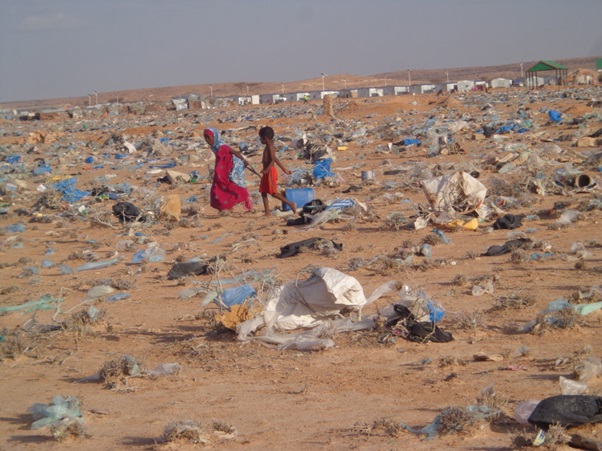
Our readers will ask “what has happened and caused these colossal environmental damages? Who is to blame? The causes of this disastrous environmental degradation are many but the following four points account for 90 percent of the causes.
1. The Destruction of Natural Vegetation
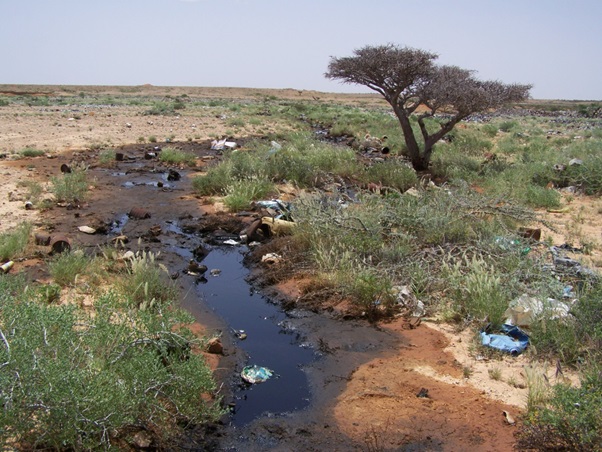
This environmental degradation – soil erosion, desertification and formation of pits and craters – is caused by the uncontrolled, chaotic and illegal human actions such inappropriate land use practices, cutting of trees for firewood, littering and pollution (air, water and soil). Droughts, overgrazing and the effects of global climate change hugely contributed to the destruction of the natural vegetation. This progressive disproportional onslaught on the environment has destroyed plant life and animal habitat, resulting in reduced forage and grazing which endangers our animals – both wildlife and livestock such as goats, sheep, camels and cattle. The cumulative effect of these illegal human actions will inevitably make this degradation an irreversible environmental disaster.
2. Problems of Uncontrolled Rubbish and Non-degradable Chemicals in All Key Towns in Puntland, Somalia
Littering is the single biggest environmental hazard in Puntland. For instance; most of Bosaso city beach is completely covered in heaps of rubbish while Garowe city is flanked by litter in every direction: plastic bottles, plastic bags and wraps, metal cans, animal remains (bones), old and decrepit pieces of clothing and shoes, empty cans of used pesticides and hazardous chemicals, streams of liquid commercial waste and used vehicle oils in the fields. But waste is not to blame but people are, for littering and failing to collect and manage waste.
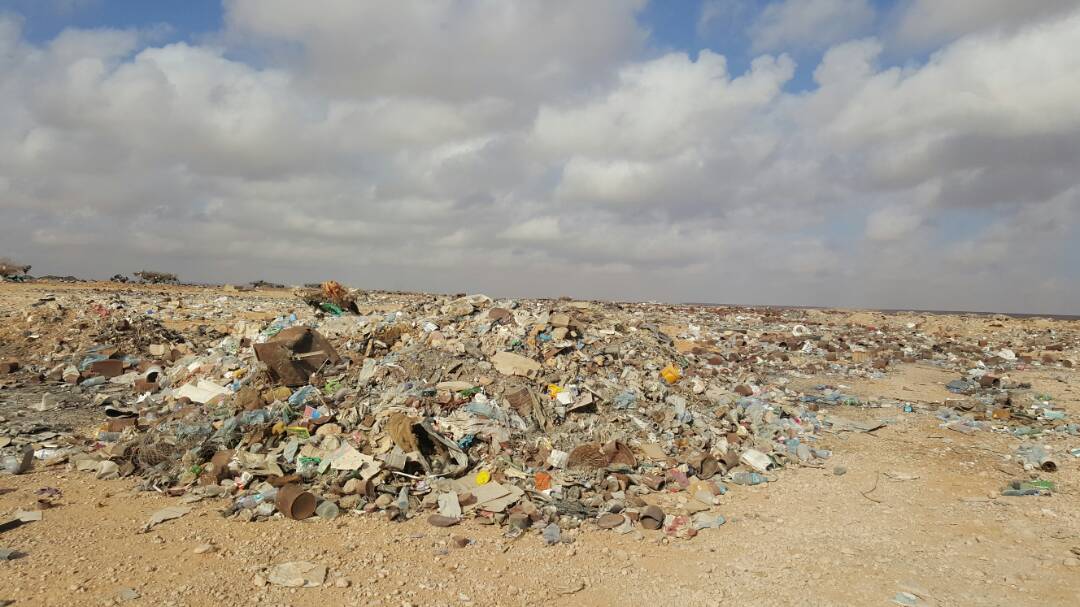
Plastic bags and bottles constitute about a hefty 50 percent of the rubbish. Puntland has outlawed the ubiquitous plastic bags (polyethene) in 2012 but that ban has never been enforced. These types of bags are used mainly for wrapping and carrying the stimulant Khat and in a lesser degree for carrying grocery.
The plastic bags are easily carried by the wind and travel miles and miles into the countryside.
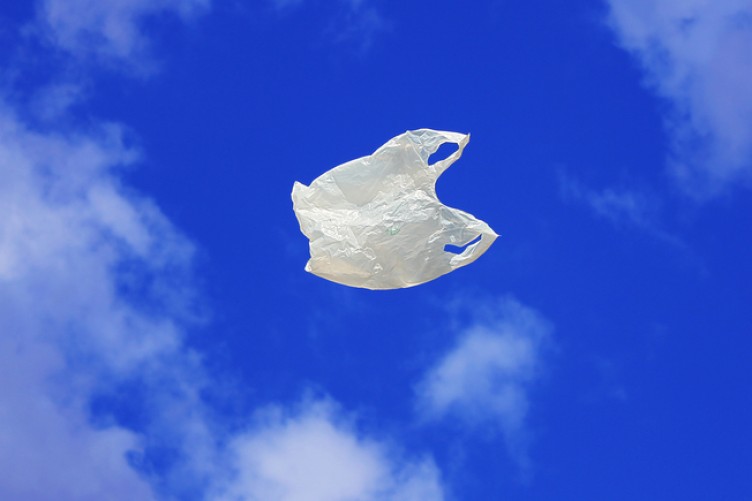
It is a familiar sight to find old plastic bags flapping from bushes and trees, stuck in the muddy sands of water streams or floating in water wells.
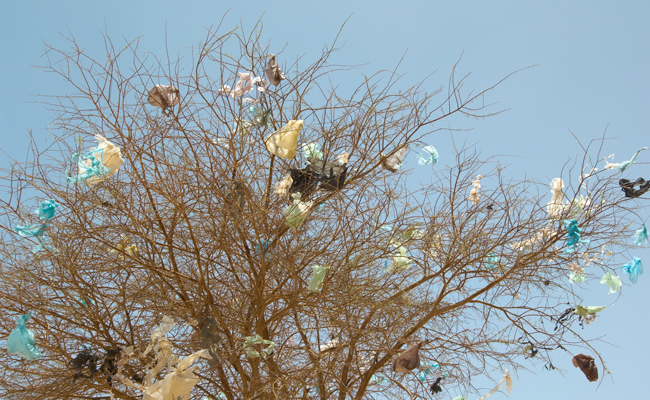
The plastic bottles are imported containing mineral water, spring water, fruit juices, and shampoo, oil tins, vehicle oil greases etc. These plastics are tossed around inconsiderately and end up forming unplanned, uncontrolled and unsafe landfills around towns.
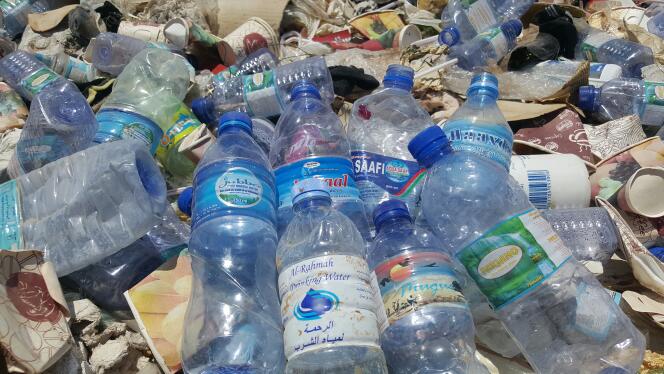
The worse bit of this sad story is the fact that plastics take thousands of years to degrade and pose serious health and environmental risks to us, animals and plants.
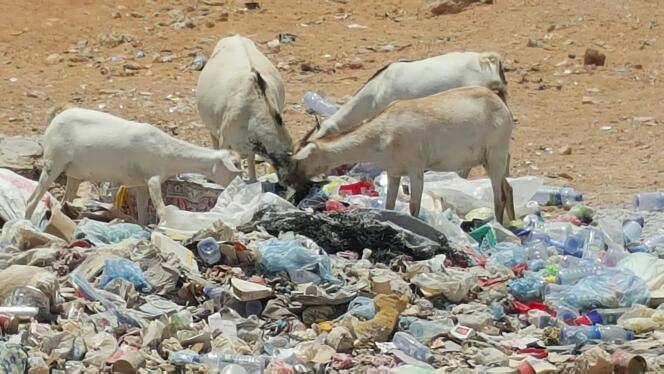
They obstruct tree growth and lead them to die by disrupting the flow of air, minerals and nutrients, choke animals and destroy the beauty of our landscapes. Similarly hazardous are the poorly planned lampposts and electrical wires hanging overhead in the streets of towns and cities in Puntland.
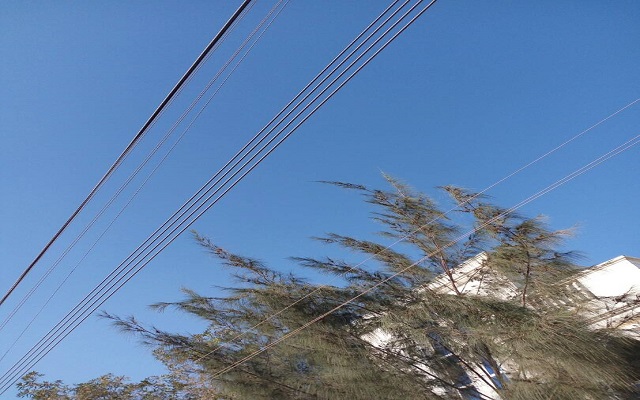
3. The Ineffectiveness of the Ministry of the Environment and the Absence of Responsible and Competent Leadership
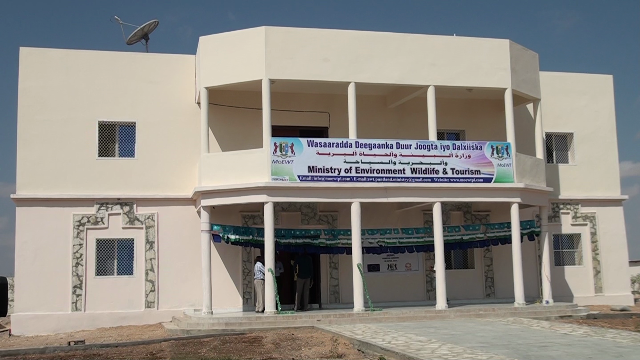
Established in February 2009, the Ministry of Environment, Wildlife and Tourism (MoEWT) of Puntland State, claims in its remit to address and help mitigate environmental problems in Puntland including rangeland degradation, desertification, poor sanitation and waste management. In its 8 years existence, the Ministry has failed but a very few to draft the necessary laws, rules and regulations.
Puntland Mirror has received credible reports that in the last two years no significant policies, regulations or strategic ministerial actions were accomplished by the Ministry and that the Ministry does not have in its books laws and strategic policies to execute its responsibility in many areas of its mandate. It is alleged that the Ministry has become engrossed with organising or attending meetings in Garowe and Nairobi in anticipation of earning allowances and per diems.
The Ministry do not have any tangible and meaningful strategic programmes and projects to deal with the key factors contributing to these serious environmental problems such as soil erosion due to sand removal (sand harvest) from hills and streams for construction, littering, illegal fencing of grazing lands and plastics.
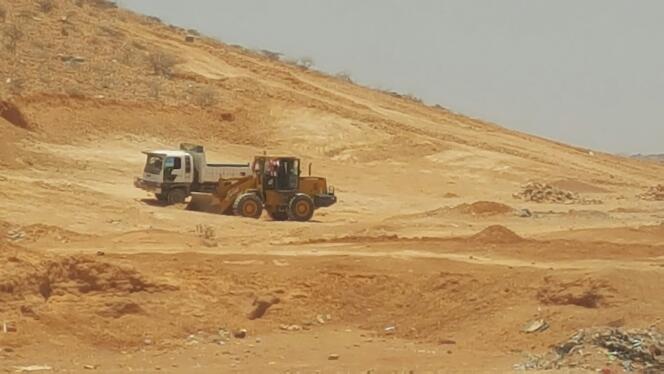
There is urgent need to pass laws to regulate the following activities:
- Control of stone, gravel and sand removal (sand harvest) from grazing fields, hills and water streams for the booming construction sector in big towns.
- Solid and Liquid Waste management (collection, disposal and management of litter, landfills, recycling, etc.)
- Regulations on rangeland management with specific focus on grazing fields, green fields, brown fields, and watersheds (pastoral and agricultural land, parks, etc).
- The import and use of chemicals and substances hazardous to animal and human health.
- Stabilisation and covering of pits and reclaiming land from litter.
- Fossil and renewable energy policies.
- Urban land planning (designation and planning of urban land, etc.).
- Environmental education and awareness.
Puntland Mirror has seen documents showing that the Ministry is heavily dependent on foreign aid and has received substantial funds from the European Union and international donors. It has failed to use this generous technical and financial assistance to build its capacity and expertise in Natural Resource Management and explore options to generate sustainable funding streams in the future. Once the ongoing project funds dry up, the Ministry will find itself in a very difficult situation, unable even to pay for its staff.
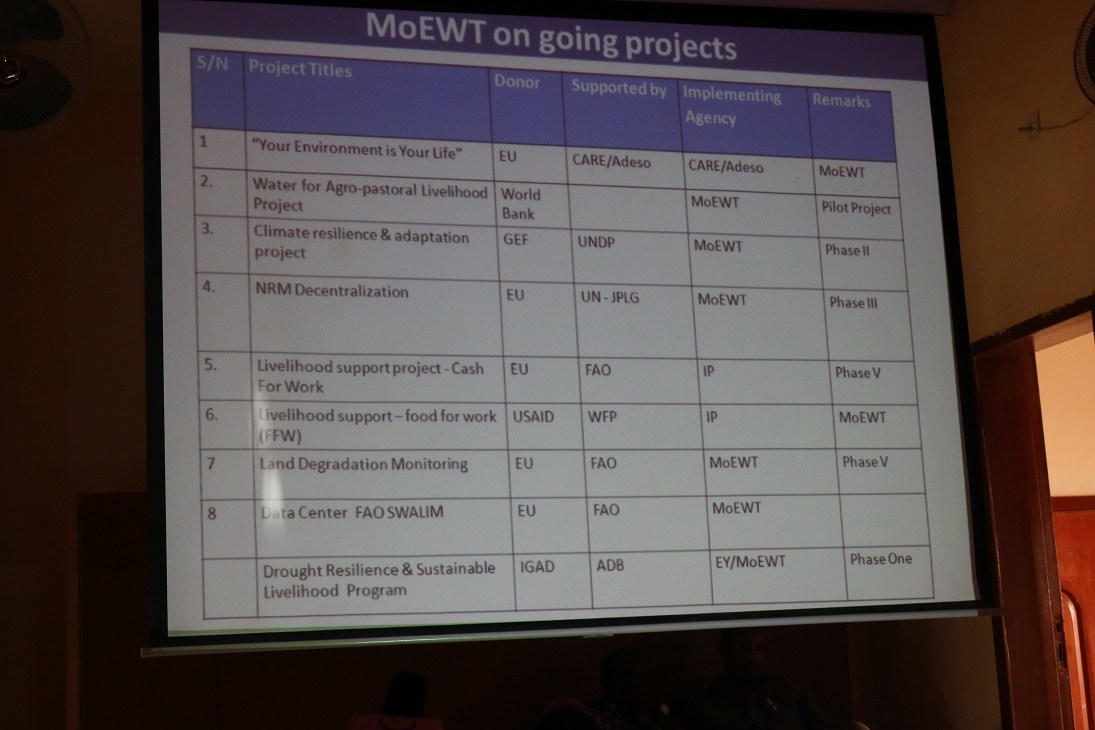
While this unabated onslaught on the environment is happening under its watch, the Ministry has not made any headlines in a single case of protecting the environmental. It only makes headlines by organising staged meetings and window-dressing validation workshops. As one observer put it, “The Ministry has become expert in the art of spinning and public relations”.
While Puntland Mirror continues to investigate cases of alleged malpractice, nevertheless, rumours abound about the Ministry’s ineffectiveness, its obscure dealings and less than whiter than white practices.
It was reported that the Ministry has not been actively involved in monitoring and evaluating the EU funded NRM project, “Environment is Your Life”. For instance; our sources suggest that at no time have the officials from the Ministry unilaterally and independently visited the sites of this very important project in Nugaal and Karkaar and has not carried out any impact analysis on the project intervention. They add that many of the soil erosion pits – planned to be reclaimed – have not been covered in Nugaal and Karkaar area. Doesn’t this suggest a remiss in their duties or a complete disregard for the responsibilities entrusted in them?
Puntland people are very apprehensive of the declining water, soil and air quality in their country. There are real simmering grievances against the Ministry since the perceived benefits of the environmental projects funded with European taxpayer’s money have not been realised. The following is four examples of the Ministry’s rather peculiar modus operandi of meetings, conferences, and placards which raises eyebrows in the State.
1. The Ministry has commissioned the drafting of the five years Puntland Strategic Environmental Development Plan for 2017 – 2022. The preparation of the draft was conducted without any serious consultation and engagement with stakeholders and local communities and without any analytical assessment on the environmental problems in the different regions of Puntland. To make matters worse, the document was only written in English and presented in a meeting in Nairobi, Kenya in March 2017. No-one in Puntland has a clue what the plans and priorities are. It begs the question of “was this document intended as a fund raising tool to solicit money from heedless European Union Somalia Mission?
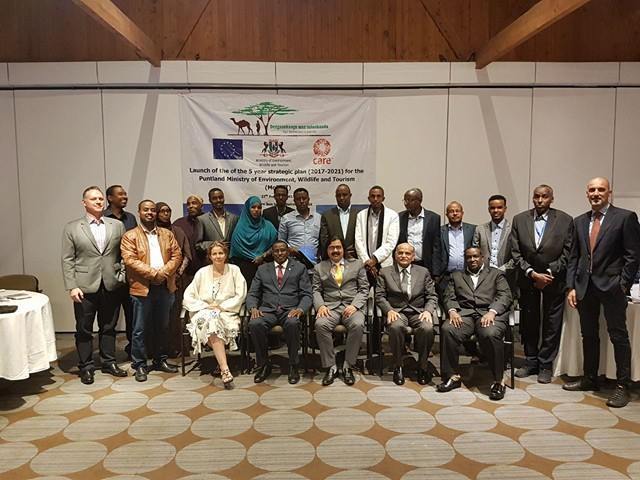
2. The Ministry has organised the second National Environmental Conference on 8th and 9th April 2017 in Garowe to discuss environmental issues in Puntland.

The Ministry has not been honest about the purpose and the participants of the conference. One of the participants, who spoke on a condition of anonymity, has said, “I was really flabbergasted to read the content of the communique on the conference on 9th. It was an outright disingenuous of the Ministry officials to declare the conference successful and even exaggerate the number and prominence of the participants. The points in the communique do not offer any solution to the environmental problems we have and do not contain specific actions to protect and restore the environment. The conference was not attended by environmental activists and experts, and not by the governors of the 9 regions of Puntland.” He added that “what was more outrageous in this conference was the absence of real discussion of the real environmental problems we face, input from eminent environmental activists, scientists and academics, representatives of partner Ministries and other important stakeholders”.
3. The Ministry has organised a follow-up funding raising meeting on 10th April 2017 with the international partners to discuss and agree the implementation of the communique of the second environmental conference of Puntland. In this meeting, the Minister declared that his Ministry has made tremendous strides in protecting the environment without offering a single example. The most interesting point in the meeting was the declaration of the Minister that they will increase monitoring and evaluation of environmental projects and that the projects which are not implemented as planned will not be tolerated. Many people saw this as “an admission of failure by the Ministry in its inspection and oversight duties”.
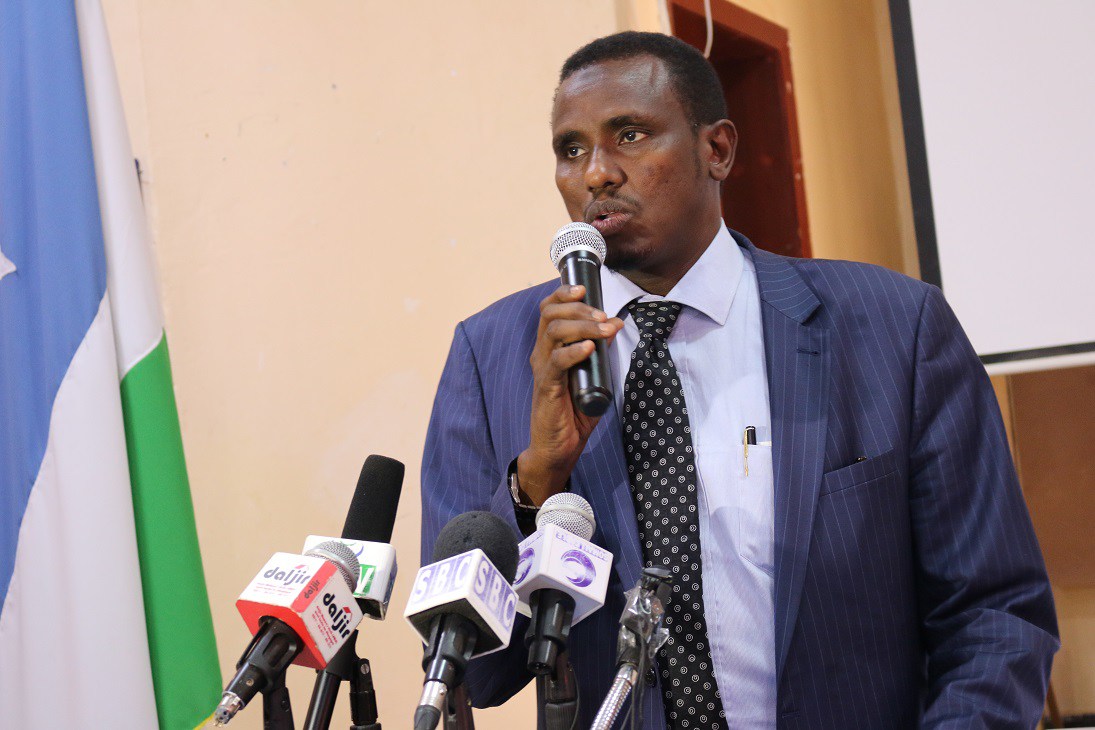
3. What goes for environmental education and awareness are metal billboards and placards illustrated in English language and erected in villages whose population are mostly illiterate. Not only does this constitute to waste of funds, but it also indicates a complete lack of insight and respect for the community’s perception.
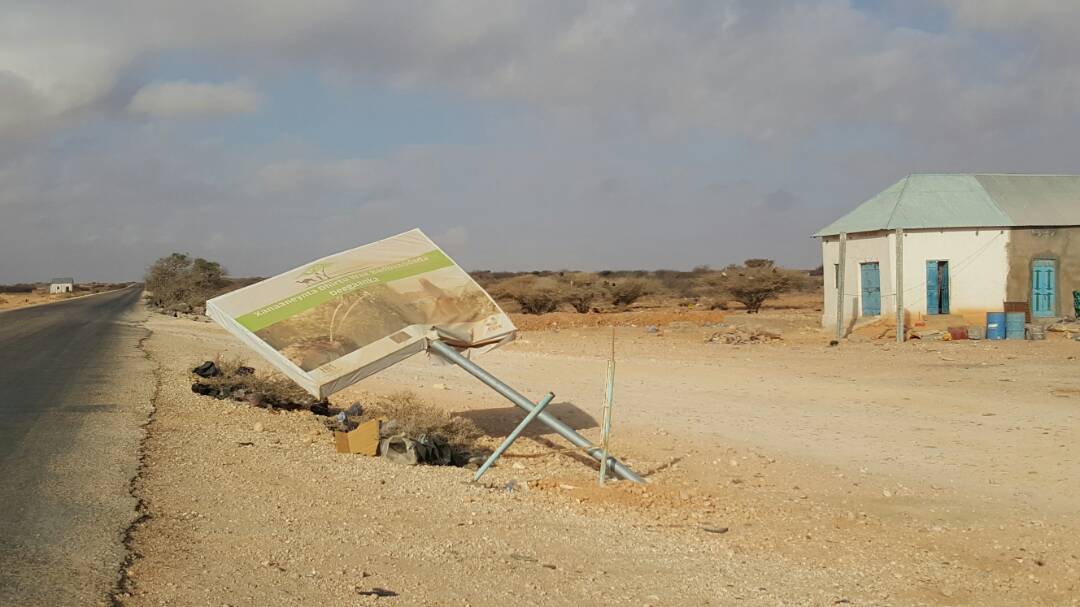
4. Complacency, Lack of Accountability and Corruption
It is quite clear that Puntland government Ministers and other senior officials are not concerned with the urgency and gravity of this terrible health hazards posed by desertification, poor sanitation and invasion of waste. These officials all operate in nice clean Ministry buildings and reside in luxurious villas in the heart of the city of Garowe. Lack of leadership and guidance, lack of regulations and enforcement, lack of social responsibility and lack of civic and environmental education underpin the perpetuation of this shameful illegal human actions.
There are no anti-corruption laws enacted in Puntland. Puntland Good Governance and Anti-corruption Bureau (PGGACB) was established in 2015 but the agency do not have statutory powers to investigate and prosecute suspects of corruption.
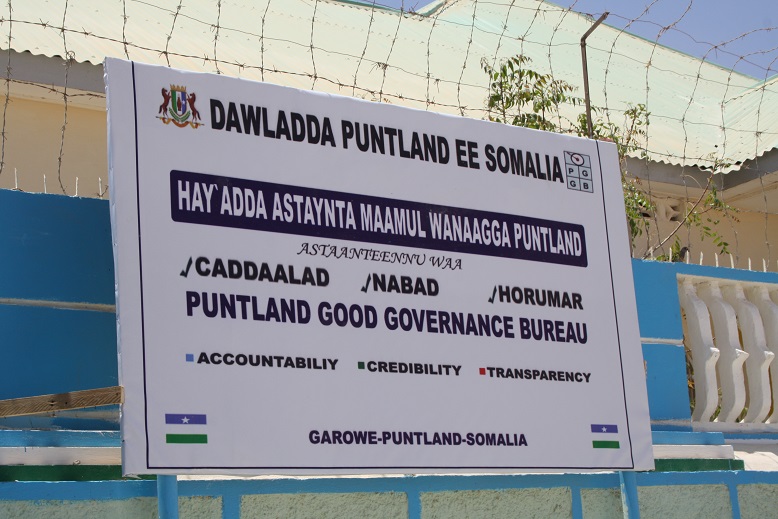
No Puntland government official has ever been held accountable for his actions and for failures in public duty nor has there been any criminal case against a government official accused of embezzlement of public money in Puntland. Thus whatever happens, like other Puntland institutions, the Ministry of Environment officials are not worried of any repercussions.
One expert commented that Puntland government institutions in general need to shake off the spectre of perceived corruption and improve their images by becoming open, accountable and transparent especially in national tendering processes and implementation of projects and services. Puntland Good Governance and Anti-corruption Bureau has to be given powers to investigate cases of corruption and malpractice and bring the culprits to justice.
Puntland Mirror would like to urge Puntland government to pass anti-corruption bill and to set up an accountability and transparency ranking system where the most corrupt Ministries could be named and shamed.
Puntland Mirror would like to ask its readers to comment on these questions:
- How would you feel to work in a nice clean building surrounded by a sea of rubbish?
- What do you think are the main factors driving the uncontrolled littering in our towns? Lack of education and awareness, lack of enforcement, lack of social responsibility or negligence of duty by the Ministry?
- Would you support to ban construction trucks to harvest sand and gravel from certain hills and fields?
- What do you think Puntland authorities should do about plastic bags and plastic bottles?
- What form of cooking energy fuel would be appropriate to Puntland to preserve the environment?



